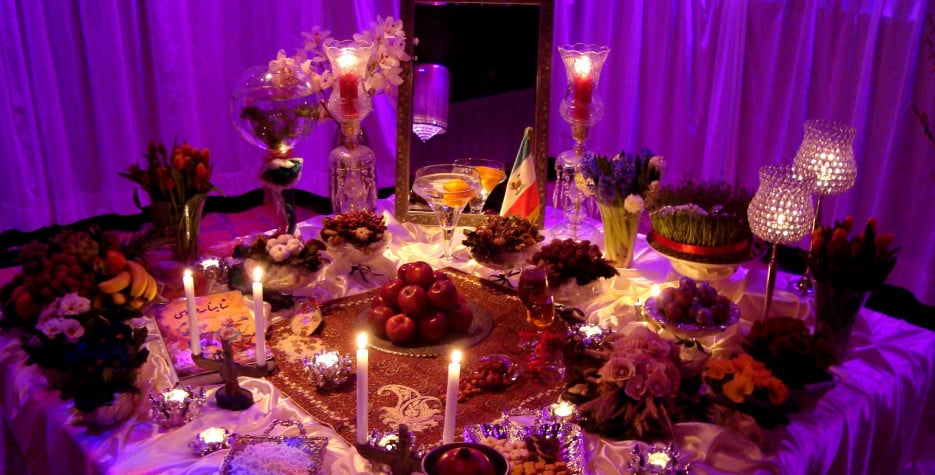Nevruz in Albania
Nevruz Day is celebrated annually in Albania on March 22nd as Sultan Nevruz. Novruz was declared a national holiday in 1996.
In Albania, the festival commemorates the birthday of Ali ibn Abi Talib and also the advent of spring.
Novruz celebrates the Persian New Year, and the beginning of Spring. Novruz means 'New Day'.
In some countries it may have a different spelling and be observed on slightly different dates. The details of these names and dates are shown on the table to the right.
History of Nowruz
This is one of humanity's oldest holidays, and although it may be often called Persian New Year, it predates the Persian Empire and can be traced back 5,000 years to the Sumerian and the Babylonian civilisations. Novruz begins on either 20 March or 21 March, on the spring equinox, when the days and nights are equal lengths, with days then becoming longer signifying the arrival of warmer weather.
The build-up to Novruz begins a month before the festival. Each of the four Tuesdays falling before Novruz is dedicated to a different element. First is Water Tuesday, where water renews nature. Next is Fire Tuesday which honours fire as a method rebirth. Then it is Earth Tuesday marking the revival of the earth. Finally, it is Wind Tuesday when the wind opens the buds and marks the arrival of Spring.
Fire worship forms an integral part of the celebrations with fires being lit on the four Tuesdays in the run-up to Novruz. On the last Tuesday, everyone has to jump over the fire as an act of purification.
Like a lot of spring festivals, this idea of purification and starting again is key. Indeed, before Novruz, activities based on renewal like spring cleaning, planting trees, make new clothes and painting eggs are popular.
On the day before Novruz, the graves of relatives are visited and tended, then the whole family will gather around the table to enjoy traditional dishes. The table will be decorated with a khoncha, a large silver or copper tray with Samani (wheat) placed in the centre and candles and painted eggs representing the number of family members around it. The feast will consist of at least seven dishes.
While not a public holiday in India, there are significant Parsi communities in Mumbai and Gujarat who follow Zoroastrianism and celebrate Nowruz. Parsis visit to the Fire Temple to offer special prayers. They also prepare festive delicacies and friends and families get together to celebrate the day.
On 30 September, 2009, Novruz was included into UNESCO’s List of the Intangible Cultural Heritage. On 23 February 2010, the United Nations declared March 21st the International Day of Novruz.
Traditions of Nevruz in Albania
Sultan Nevruz has been celebrated in Albania since the 14th century when Bektashism (a Sufi order of Islam) spread to the country. After the fall of Communism, it was decreed as a national holiday starting from 1996. It is prominent amongst the nations' Bektashis (because of their Shia affiliations), but adherents of Sunnism, Catholicism, and Orthodoxy also "share in the Nevruz festival to respect the ecumenical spirit of Albania".
The Bektash sect is located mainly in the south of the country, while it has a considerable extension in the territory of the Republic of Albania. The Bektashis are also widespread in Kosovo and Macedonia, where, along with the Sunnis, they make up the Albanian population of the Muslim faith.
The holiday lasts three days. The first day is celebrated within the family. The second day is focused on the elderly who are kept in sacred places to honour the imams. On the third day, it is the turn of women, especially new brides. Believers visit each other and pray.


